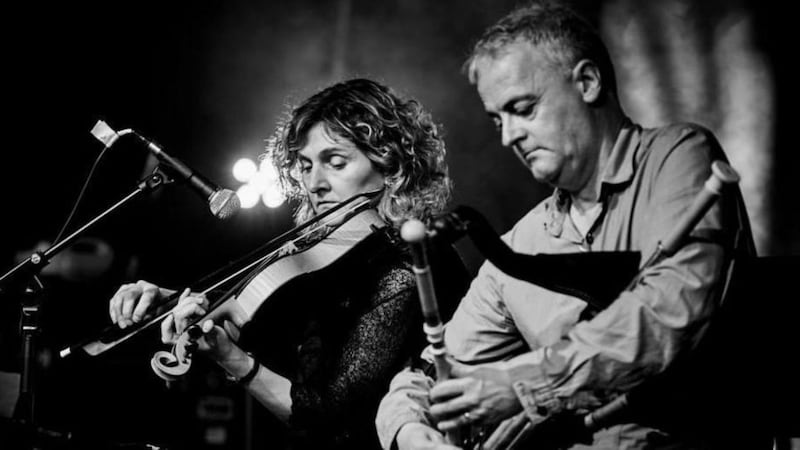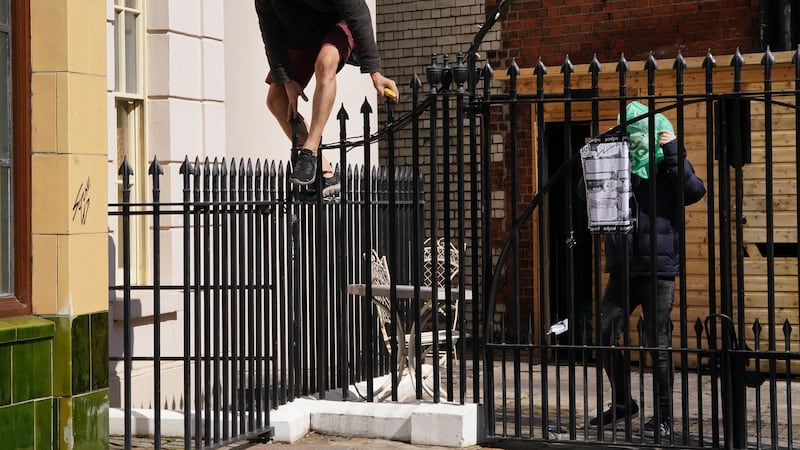I REMEMBER an even more vacuous than usual edition of The Nolan Show on television when the subject under 'discussion' was the old false dichotomy of whether more public money should be spent on the arts or whether the funding, meagre as it is, should go to helping our ailing health service.
But musicians such as Tony McMahon have always talked about the healing power of traditional music and one person who knows what she is talking about in this regard is Josie Nugent, a fiddler from Co Clare who now works as a music therapist in Belfast.
Does she believe that music really has a role in healing people?
“Absolutely!” is Josie’s unequivocal reply. “I have some beautiful examples of my work, especially with teenagers. They can come into a session and they will use instruments to self-heal.
“Say it was a kid with autism who really struggled to deal with the outside world that we see as normal. They can self-express and work through their feelings. It's fantastic. We can do this, give them a chance to find a sense of themselves."
You often hear people say money should be diverted from the arts – 'Think of the people in hospital’ – but they don't realise that the arts are health enhancing too. Josie agrees.
“Human beings are fundamentally musical,” she says. “Our whole bodies work in rhythm and you can just tap into that pulse within the body through music. This inspires people and gives them a belief.
"The wellbeing in the person can be enhanced by the music. No medicine can do that. It can physically make them feel better but that other side, the psychological side of a person, can be wonderfully enhanced through the use of the arts, with whatever format works for a person and music works wonderfully well."
Josie works with people post-stroke and people who have acquired brain injuries. She says it's “huge” to see them develop self-esteem and self-worth through being involved in musical projects where they create a song as a group or create a performance.
But is playing music therapeutic for musicians as much as it is for an audience? Does Josie use her own music as therapy?
“I would in a way,” she says. “I would sit here at home, improvise, record it and then I would reflect on it. It does reveal my feelings and it lets me know that things are all right, you know? It helps me know where I'm at."
However, music is a co-operative venture as well. Josie has been involved in experimental projects such as Sasquatch, a musical theatre production featuring live improvised music, song, dance and film sequences to accompany Irish-language poet Gabriel Rosenstock’s published work Sasquatch which premiered last January and she is also involved in community music projects.
But back to the beginning: Josie’s home turf of east Clare is synonymous with music. Was it just tapping into the well of music that was all around her back home?
“It was, really,” she recalls. “I grew up surrounded by music. My neighbour over the road was fiddler Jack Mulcaire and my sister Mary and I would out of his house regularly. I was also lucky to learn fiddle from Tony Lennane. Martin Hayes was about, we were in a céilí band together back in our teenage years.
"There really was just music all around; it's just what we did. It was our social life and always has been. I’ve played a lot with my sister from we started and all through our lives.”
Quite a pedigree then. No wonder she has been much in demand, playing on Fead an Iolar with Na Casaidigh; Hills and Hollows with her sister Mary, and The Caves of Cong with her piping husband Brian Stafford.
In 2013 Josie was appointed musical director and composer for the Fleadh Cheoil na hÉireann closing ceremony in Derry. She has a new album out at the minute called Modal Music and I’ve been intrigued by this type of music since Eugene Dunphy told me about Karl Hardebeck – but that’s another story.
The music is written in nodes rather than in the do-re-mi we are all familiar with. What’s Josie’s idea of modal music?
“Well, when you go back to the old Irish tunes, a lot of them are not written in the classical scale, they're written on a different kind of scale called modes. These are used widely in east European and other world musics and a lot of Irish music was written in four modes.
“For me, I just identified with it, it seemed more 'moody', if you like, but I had to be strict with myself when I was writing the album, making sure that everything was written in a mode as opposed to using classical scales.
“All music is modal music because within the modes you have the happy ones and the sadder ones. For me it's a bigger form of expression. I know that jazz is modal as well; jazz composers think in modes.”
For Josie, the challenge was to get the modes in the right order so that from one track to the next there wouldn't be any major jump in mood for the listener. Modal Music starts with a few trad tracks and then there is a move into more creative compositions before the journey back into trad.
It all adds up to an intriguing and hugely enjoyable album – whether you need healing or not.




